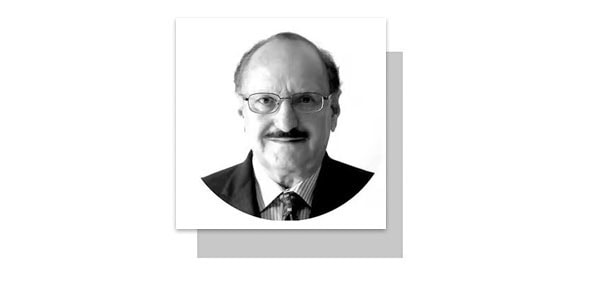THE Israel-Iran conflict was more than a regional clash; it reshaped the balance of power, destabilized the entire region and had global repercussions.
Conflicting narratives and manipulated perceptions eroded the credibility of key players and signaled dangerous consequences ahead. The US-brokered ceasefire may be holding for now, but the smoke has not cleared on what really went down. Who won? Who lost? That is still an open debate. All sides: Israel, Iran and the US claim victory, each insisting the pause happened on their terms. But behind the headlines lies a far mistier reality. It is still unclear whether Israel achieved its goals, Iran safeguarded its key interests or the truce signals just a pause before a more serious storm.
The gravity of the situation is evident, as this latest operation marked the first time Israel and the US jointly targeted Iranian nuclear sites, demonstrating the capability to strike much deeper within the region. Assassinating key regime figures including nuclear scientists, shattered decades of managed hostility concept and marked an evolution to autonomous killing.
Israel, with US support, will likely keep pushing Iran to stop its nuclear program. Additionally, the US foreign policy seems to have transformed into an economic warfare machine, one that shapes every international crisis through the distorting lens of financial punishment. Trade wars have begun in the mind.
The strikes against Iran have raised concerns in other neighbouring countries, particularly in the MENA region. Pakistan is also one of those who should feel threatened by this development. On the other end, leadership in Iran remains focused on three main goals: keeping the regime on strong footings, protecting its nuclear program as a safeguard for survival and preserving key military assets like missile systems, intelligence networks and command structures to handle the threats. Despite a major setback to its nuclear program, Tehran is unlikely to give up its goals. In fact, its push for nuclear capability may become stronger, especially when it feels its influence in the region is on a decline. Internally, Tehran has intensified internal security measures in response to significant Israeli infiltration that may help Israel to exploit internal vulnerabilities by deeper penetration.
To balance out the US-Israel alliance, supported by majority members of the EU group, Iranians are actively pursuing to develop Iran’s strategic economic and defence ties with China which may offer a much-needed relief for Iran in its attempts to rebuild military and economic infrastructure in the coming days and months. Iran has also made some inroads with Russia, reportedly to seek its assistance.
The prospect of reviving a nuclear agreement with Iran poses a difficult dilemma for Israel, although the final decision largely rests on choices to be made in Washington and Tehran in the coming weeks. After the US pulled out of the last nuclear deal, changed its demands during recent talks and joined Israel to bomb Iranian nuclear sites, will Iran likely agree to any compromise? Much will depend on the evolving internal dynamics of the country and on how any compromise is communicated. So far, Iran sounds unyielding in the pursuit of its nuclear program. Iran’s nuclear program is likely to reconstitute with greater urgency and less transparency.
The gravest impact lies in regional nuclear proliferation acceleration. Regional powers now eye independent nuclear capabilities as US security guarantees collapse. While Iran shows no interest in returning to negotiations, especially those requiring it to give up uranium enrichment, Israel has reaffirmed its commitment to achieving its goals through diplomacy or force. Some of the European powers are trying to play a role and act as a counterpoint to US-Israeli hard power, by proposing enhanced monitoring and making commitments in its nuclear program, something which Iran is unlikely to accept accusing IAEA of aiding Israel and the US during the conflict.
Both Israel and the US claim that ultimately, the long-term solution to the Iranian threat to Israel’s national security lies in regime change in Tehran and they will continue campaigning against Iran using diplomatic, economic, covert intelligence and at times military means to ensure the realization of all their strategic objectives. These include blocking Iran’s path to nuclear weapons, dismantling the pro-Iranian axis and limiting the missile project.
The threat of future conflict appears to extend beyond Iran, Israel and the US, potentially drawing in other regional players as fallout spreads. The situation echoes the Soviet-Afghan war four decades ago. Afghans endured immense suffering but ultimately retained their sovereignty, while powerful external actors had to finally withdraw. Neighbouring countries, dragged into conflict by necessity rather than choice, suffered lasting damage. Today, Iran seems equally determined to maintain its position, but other regional states will need to navigate the unfolding crisis with extreme caution and strategic foresight. Recent major policy changes by some of key actors in the region suggest a clear shift in the prevailing geopolitical landscape.
The scenario exactly reflects the architecture of fear where the feelings of insecurity shape strategies and doctrines. ‘Might is right’ mindset continues to dominate the systems, seen in politics, wars, economics and ideologies. “Survival of the fittest” plays out through colonialism, racism, ethnic conflict and nationalism. These systems are upheld by economic control, exploitation, creating divisions and manipulated narratives. While there remains a collective hope for peace and tranquillity in the region, long affected by decades of turmoil, the current circumstances suggest that achieving lasting peace and stability may remain a distant goal. Amid the current geopolitical landscape, the Iran-Israel conflict, God forbid, seems to offer a troubling glimpse into the kind of instability that may define the times ahead.
—The writer is Security Professional, entrepreneur and author, based in Dubai, UAE.

















